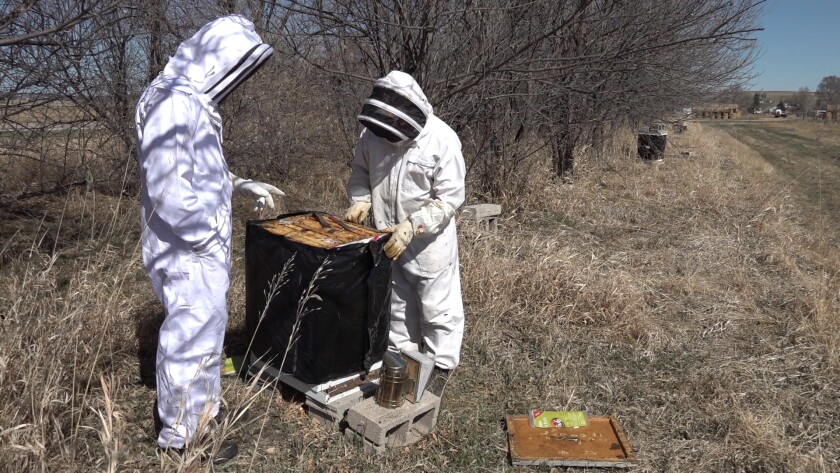Honeybee numbers nationwide show a decline
Honeybee numbers suffered a considerable drop last year leaving commercial and hobby beekeepers struggling to understand why and working to repopulate colonies.
A study done by Project Apis M. for the period of June 2024 to March 2025 showed more than a million honeybee colonies were lost nationwide.
“1.6 million colonies have been reported as losses,” said Timothy Moran, President of the Black Hills Area Beekeeping Club. “That's a huge number. I mean, when you only have about 3 million colonies throughout the United States, and you're losing almost half of that population, definitely, definitely going to affect the production, the overall honey production when you don't have as many bees.”

Drought, parasites, fewer crops favorable to honeybees, viruses, and chemicals used in crop production, all play a role.
“Well, to me, it's the accumulation factor, you know, throw in a drought year. Throw in some viruses that the bees can't fight off. Throw in the normal pesticides, herbicides and fungicides. You know, it was just a perfect year for the collective health of the colonies, to to take a to take a hit,” Moran said.
Moran said revering the trend of the reduction of honeybee and pollinator numbers starts with education, and even the local gardener can help.
Let dandelions bloom for one cycle to feed hungry early season pollinators, for instance, use pesticides carefully if at all, plant honeybee friendly herbs and flowers like sunflowers, bee balm or lavender, and maybe even get involved in beekeeping and start a hive or two of your own.
One thing is certain, the declining bee population impacts the production of, and the cost of, the nation’s food supply.
“One out of every three bites of food that humans consume has been affected by a pollinator in some way, shape or form, and that's all pollinators. One out of every five bites, or 20 percent, are directly affected by the honey bee.”
댓글
댓글 쓰기